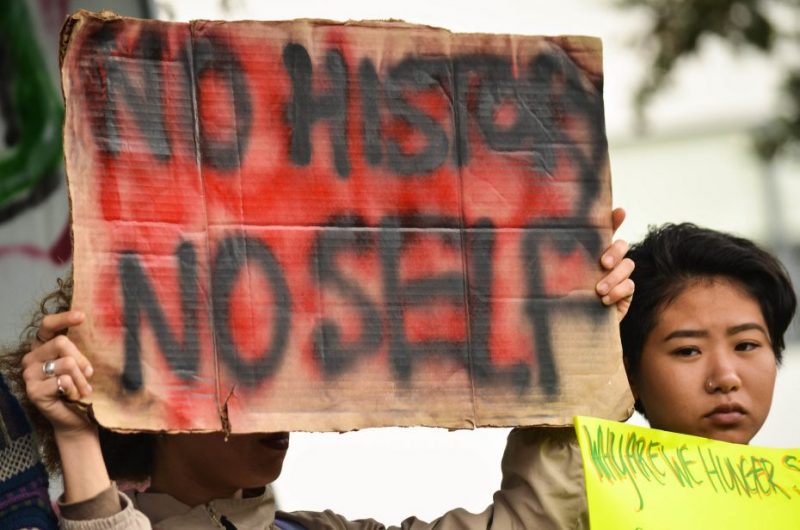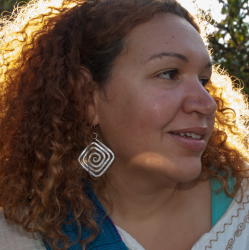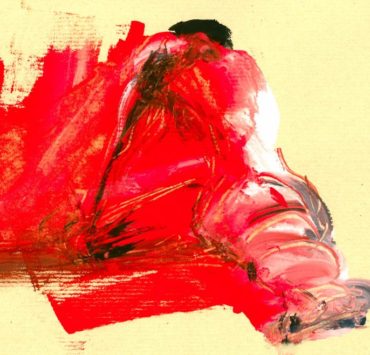
There is no secret about the way in which white nationalism and white supremacy permeate all levels of our society. The last decade has shown us that we have not yet won, and that the violence and destruction based on bigotry and hate is still very much here. It is sad and scary to think about all the lives that have been lost — from Trayvon Martin in Florida (2012) to Joane Florvil in Chile (2017) to Carolina Payano in Milan (2011) — and the dangers that we face for living in these non-white bodies.
And yet, I would urge us to talk beyond these awful violences, beyond the mourning and anger, to dig deeper into the “seamless” ways in which white supremacy shapes our institutions and every aspect of our lives. This is most evident in my location of work, in my subject position as a scholar of Latinx Studies. Colleges and universities, particularly the elite kind, were not created for people like me: a Dominican Latina immigrant from Trenton, NJ. Harvard’s manufactured “science” denied Puerto Rican citizenship and produced rhetoric which deemed black people as inferior. White supremacy in these institutions bleeds through the photos of white men which hang in the halls of the university, in the syllabi that privilege white cannon and lack any type of representation for people of color, and in the university’s inability to hire or retain black and brown faculty, in the university’s disavowal of Ethnic Studies as a legitimate field of knowledge.
Writing at the turn of the 20th Century, Arthur Schomburg, the black Puerto Rican scholar and bibliophile, advocated for the creation of departments of Black History, and for the formation of Black historians as a way to contrast the lies, the silences and the outright violence produced about black and brown people in the university. His proposal re-introduced that which “slavery took away:” the possibility of humanity and belonging. Ethnic Studies — black, Latinx, indigenous, Asian, Arab — is charged with the immeasurable task of filling the gaps left by all the other fields of knowledge, with creating a learning environment that contrasts the supremacy of whiteness, inequality, racism, and exclusion that dominates our canons, libraries, and archives. What could possibly be more important to our humanity? What could possibly be more important to our universities?
The repetitive conversations with our institutions to justify the need for Ethnic Studies is a confirmation of the structural supremacy of whiteness in our colleges and universities. The recent appalling denial of tenure of one of our jewels in Latinx Studies Dr. Albert Laguna, reinforces the violence against scholars who are trying to return to what, as Schomburg suggested, “slavery took away.” It’s enraging how Yale and other institutions continue to deny its Ethnic Studies scholars support. The same scholars who produce important, life-saving work all the while mentoring and supporting students. The resignation of 13 senior scholars affiliated with Yale’s Ethnicity, Race and Migration Ethnic Studies as an act of protest gives me hope.
Ethnic Studies departments and programs make our universities a little less bias, a little less racist, a little less white. They provide students with spaces for thinking and writing about important questions; they also provide support for students of color who are made to feel in every other course, like second class citizens who are reminded that they don’t belong. The action of the 13 Yale professors amidst their university’s disavowment of Ethnic Studies is an act of radical hope for the possibility of another way of learning, and for the possibility of returning what slavery took away. Their actions are a reminder that amidst violence we have always managed to prevail by radically hoping that unity and solidarity can finally allow us to turn this thing around the way it always happened, fighting back. I stand with Albert Laguna and the Yale 13.
Lorgia Garcia Peña, Harvard.
Image Credits: Melissa Minton

Lorgia García-Peña is a Professor of Latinx Studies at Tufts University, the co-founder of Freedom University Georgia, and the author of three books: Translating Blackness (2022), Community as Rebellion (2022) and The Borders of Dominicanidad (Duke 2016). She is the co-editor of the Texas University Press series, Latinx: the Future is now and the co-director of Archives of Justice. She writes and teaches in English and Spanish about the intersections of blackness, colonialism and migration, centering Black Latinx lives.







